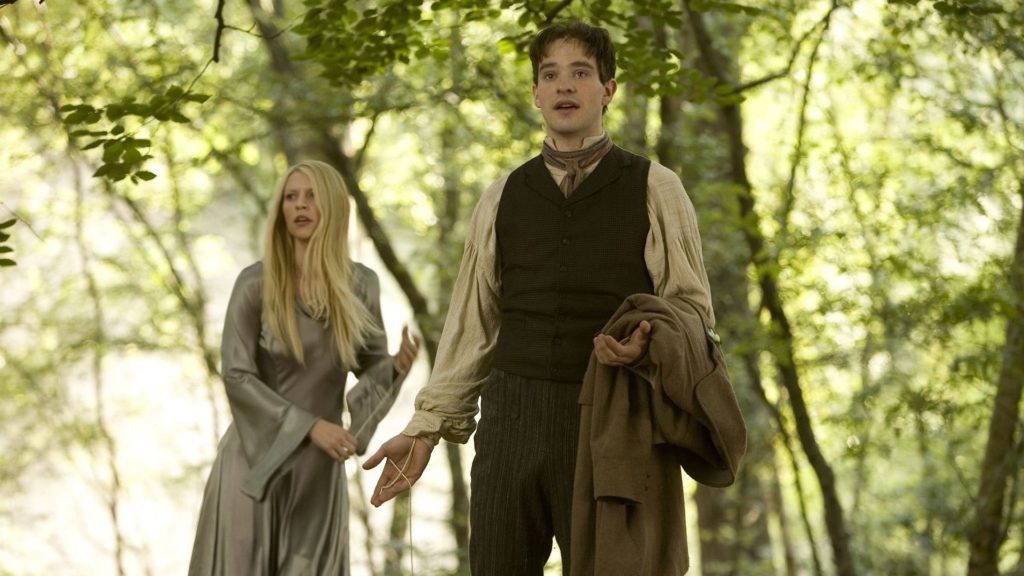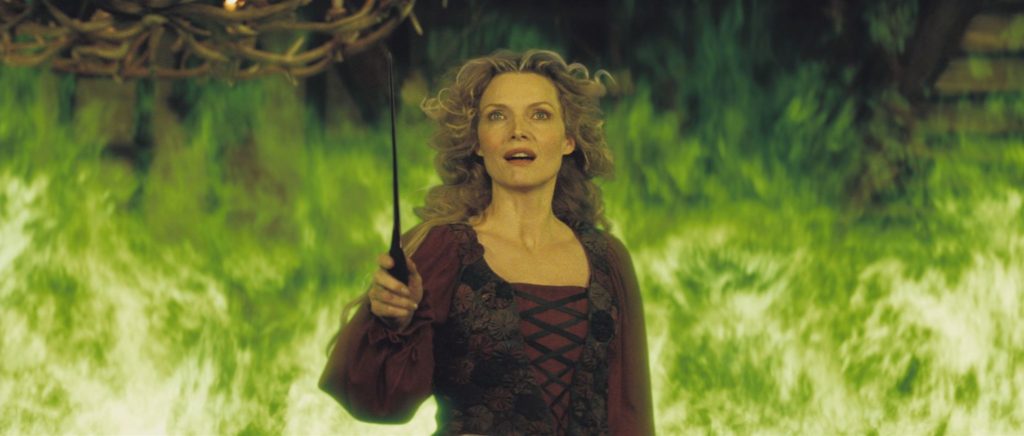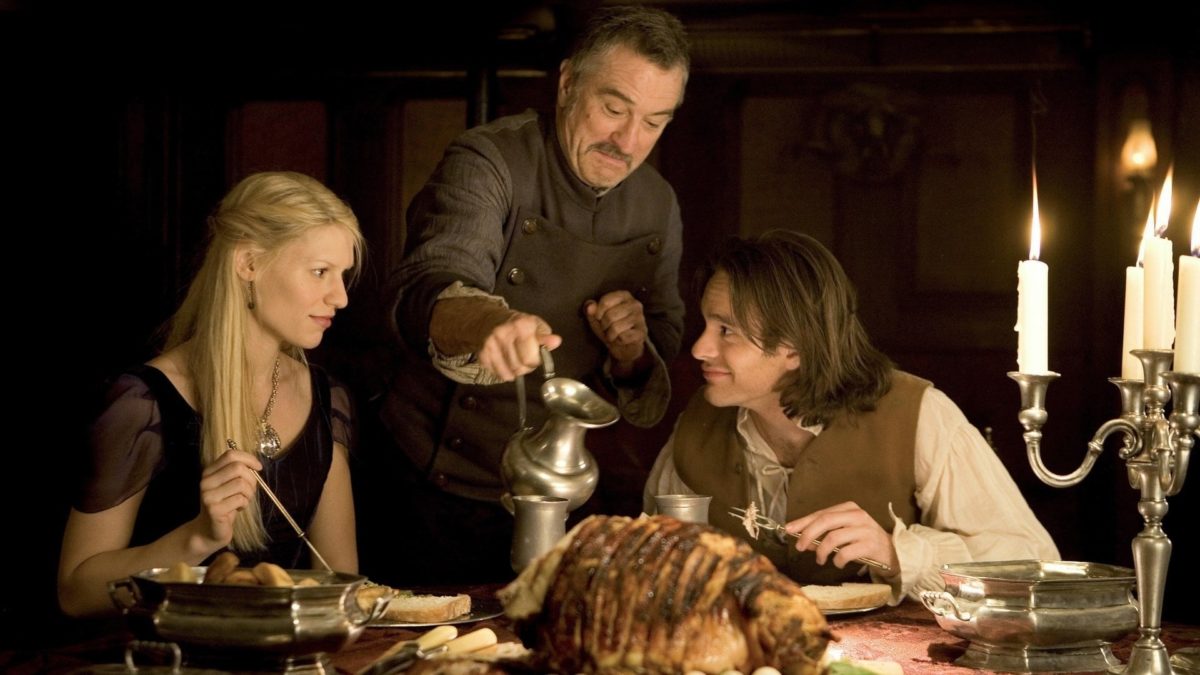Gettin' Ziggy wit it
Stardust is a rare breed: A standalone, high-budget, live-action fairytale unaffiliated with any franchise or extended universe. The film it most desperately wants to evoke is The Princess Bride, but flashier, with sky pirates and CGI voodoo. It’s nowhere near as charming as the William Goldman-Rob Reiner classic, but it honestly holds together better than I would have predicted: Not much about Layer Cake suggests that Matthew Vaughn could immediately transition to high-functioning Hollywood blockbuster steward, and yet here we are.
The adaptation of a Neil Gaiman novel is the first screenplay credited to Jane Goldman (no relationship to William), who has become a longstanding collaborator of Vaughn’s since. Vaughn has both a director and producer credit, and is the one who secured the option after the rights played hot potato around Hollywood.

The film follows Tristan Thorn (Charlie Cox) as he chases a fallen star, which has come to life as a young woman named Yvaine (Claire Danes), to try and win the heart of the beautiful Victoria (Sienna Miller). Meanwhile, the witch Lamia (Michelle Pfeiffer) and a family of princes (Mark Strong, Jason Flemyng, and Rupert Everett) are each hunting for Yvaine to secure her star powers for their own purposes.
Along the way they cross paths with a bunch of memorable characters: Captain Shakespeare (Robert De Niro), whose external brusqueness masks a softness; Ferdy (Ricky Gervais), a trader of stolen goods; and Una (Kate Magowan), whom we suspect from the opening flashback scene is Tristan’s secret mother.
The film has a busy 127 minute runtime, filled with set pieces and a lot of plot to sort through. Gaiman and Goldman make use of a bunch of Chekhov’s guns and a few dei ex machina; but hey, it’s fantasy. The action and twists are well-paced — despite the two-hour plus runtime, it’s exciting throughout. The bones of the story are deliberately unoriginal fantasy material, but the tropes are remixed just enough for it not to feel like a retread of other stories.

What keeps it from greatness is that it’s more concerned with how the scenario looks than what it feels like. This is the opposite of what makes most Gaiman fantasy work — his stories are always deeply in touch with the subconscious, which gives them a dreamlike, deeply-felt tenor. Stardust is almost entirely absent any emotionality: it’s a quick-moving spectacle that forgets most fairy tales are charged with horror and grief.
And it honestly doesn’t even look that good: You can tell from the poster alone that it’s blue-orange graded to all hell with no coherent visual style. The special effects haven’t aged as poorly as some from the era, but it still all looks so gimmicky and glossy. The production design is solid but too busy and unfocused to really appreciate. The camera is hyperactive, as if Vaughn figured more visual chaos was the equivalent more of excitement.
There’s also some peevishness to the screenplay and direction that pops up now and again. Vaughn is trying hard to restrain his juvenile sense of humor and cynicism, but it peeks through with a few eye-rolling jokes about cursed boobies or how men only want one thing. But I will give him credit for using some restraint on the big Robert De Niro revelation that could have been a cheap punchline, but is instead empathetic. (“Tasteful” would be too far, I think.)

In spite of my hesitations, the movie really does hold together. The acting is good enough, with Pfeiffer delivering the lone knockout elevating the film. The plot moves quickly but coherently, and it builds to a really triumphal and satisfying ending that wipes away any bad vibes. I won’t hesitate in showing this to my kids in a couple of years.
Vaughn ultimately proves himself a serviceable blockbuster director in a project with much more taxing demands than low-budget crime comedy like Layer Cake.
- Review Series: Matthew Vaughn
Is It Good?
Good (5/8)
Awards, Honors, & Rankings
Dan is the founder and head critic of The Goods. Follow Dan on Letterboxd. Join the Discord for updates and discussion.


2 replies on “Stardust (2007)”
All I really remember from either the novella or the movie is that they were unmemorable, though in the former case the illustrated version had Charles Vess drawings, which are cool; it was about where I became convinced that maybe Gaiman only had the one great tale in him (namely Sandman), which is fine–Sandman is amazing, one of the very top-tier comics. I know he’s still quite popular, but nothing I’ve seen of e.g., American Gods (admittedly just the show, but which confirmed how much it was retreading Sandman concepts), has really made me want to change my mind on it.
Oh, and I hope you know that I would not usually nitpick word choice or grammar (if I wanted to do that, “dei ex machina,” or “dei ex machinis” if you wanted to justify the terrible decision to spend the last ten minutes figuring out what case and declension “machina” was in); however, as I’m 100% sure that you think “swarthiness” means something besides what it actually means, I believe it’s worth pointing out. -_- (Feel free to delete this, of course.)
LMAO I just looked up the definition, and I’m not sure what word I was thinking of. Thanks. Updated the “deus ex machinas” too.
I’ve read American Gods and quite liked it, but never read Sandman, which probably explains it.